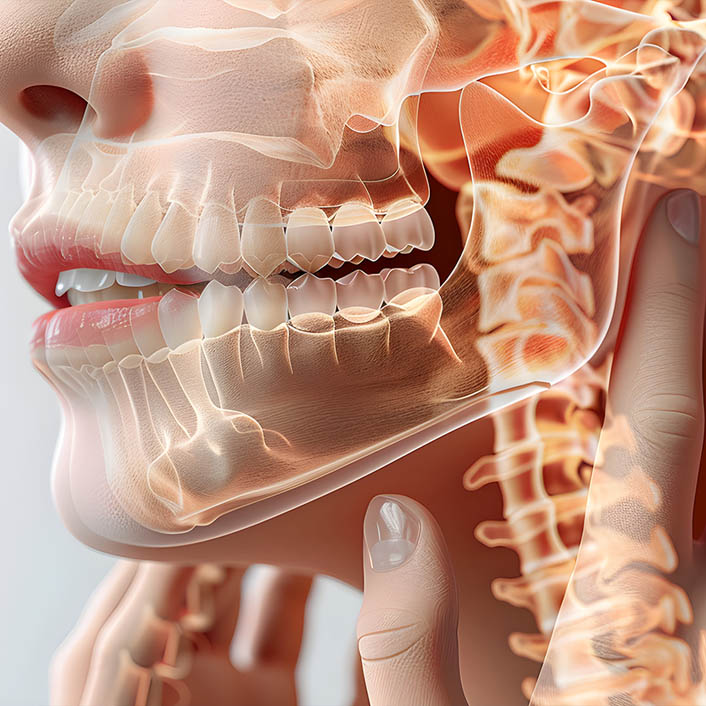

Dentistry isn’t just about teeth. Problems with your jaw and bite can negatively impact your daily life. Do you suffer from a TMJ disorder? We can help!
TMJ stands for temporomandibular joint, and the acronym is typically used to describe dysfunction or disorders related to the joint (sometimes referred to as TMD). “Temporo,” refers to the temple area of the skull; “mandibular,” refers to the lower jaw; and “joint” is essentially where the head and jaw meet. Problems in this joint may be caused by trauma, misalignment of the teeth, arthritis or excess muscle tension. It can be difficult to pinpoint the exact cause. Some people develop TMJ from clenching and grinding in their sleep, for example, while others who clench and grind never develop the disorder. The two bones that meet at the jaw are buffered by cartilage and five different muscles, so TMJ can cause a variety of troubles. Common symptoms include:
What should I do?
If you experience some popping and no pain, these are early signs of TMJ changes and you may or may not not need intervention, but we are happy to answer any questions you might have. If you are experiencing those symptoms with pain, an evaluation of the entire joint as well as the surrounding musculature and the dentition is indicated. There is no one solution that is right for all cases. We will work together with you to create a custom-designed treatment plan to improve your health. Our skilled team has worked hard to know the ins and outs of TMJ disorders to better serve you.
If TMJ is left untreated and reaches extremes, surgery may be required to repair the badly damaged joint. Talk to us about your concerns! We will do everything in our power to find a solution.

© Ed Dye Family Dentistry. All Rights Reserved. Site By: Ascent PGS